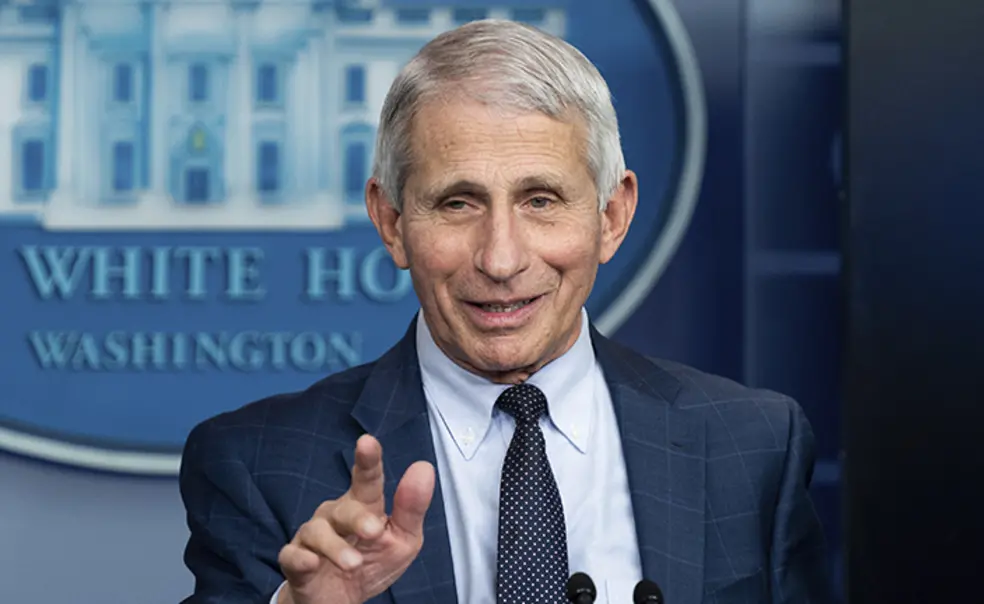In Short: Anthony Fauci Chosen as 2022 Class Day Speaker
In March, the University announced plans for an alumni-backed initiative to study the potential benefits and pitfalls of blockchain, the technology behind cryptocurrencies. Based in the School of Engineering and Applied Science (SEAS), the initiative will span engineering, social sciences, public policy, economics, and the humanities, according to University announcement. “Technology has always disrupted power, but blockchain is a new platform for doing so. It is very exciting and important to think broadly and deeply about the applications it enables as we also generate innovations that push the boundaries of the technology itself,” SEAS Dean Andrea Goldsmith said in the announcement.
The initiative received initial funding from four donors: Peter L. Briger Jr ’86, principal and co-CEO of Fortress Investment Group; Joseph M. Lubin ’87, co-founder of the blockchain and cryptocurrency platform Ethereum and CEO and founder of ConsenSys, a blockchain company; Daniel W. Morehead ’87, founder and CEO of Pantera Capital; and Michael E. Novogratz ’87, CEO of Galaxy Investment Partners. The total amount of the gift was $20 million, according to the University. Princeton spokesman Michael Hotchkiss said that the University and the donors are “discussing what form the gifts will take,” adding that “Princeton is open to considering gifts in cryptocurrency.”
Anthony Fauci, director of the National Institute of Allergy and Infectious Diseases, has been named Princeton’s 2022 Class Day speaker. Fauci, who has advised seven U.S. presidents on health issues, is the top infectious disease expert in the nation. “This year’s speaker is undoubtedly among the small handful of leaders who have had the largest global impact over the past few years,” said Class Day co-chairs Julia Chaffers ’22, Sarah Lee ’22, and Christian Potter ’22 in a video announcement to seniors. The event, scheduled for Monday, May 23, will mark the first in-person Class Day since 2019.
Teach For America founder Wendy Kopp ’89 will be the Baccalaureate speaker for the Class of 2022. Kopp wrote a senior thesis outlining her ideas for a national teacher corps to serve urban and rural public schools and then brought her idea to life. She now serves as CEO of Teach For All, an international network of partner organizations that she co-founded. In 1993, Kopp received the Woodrow Wilson Award, becoming the youngest graduate and the first woman to receive the University’s highest honor for undergraduate alumni.
Princeton extended test-optional admissions for prospective undergraduates applying in 2022–23. Applicants who choose not to submit an SAT or ACT score “will not be at a disadvantage in our process,” the Office of Admission wrote in a February update. Several peer institutions, including Yale and Stanford, made similar announcements, and Harvard has committed to test-optional admissions through 2026.
After 16 years at Princeton, Rabbi Julie Roth, executive director of the Center for Jewish Life and the Jewish chaplain, is leaving the University at the end of June to lead a congregation in Montclair, New Jersey. “Working with our incredible students, alumni, staff, and Princeton community members has been one of the greatest privileges and most fulfilling endeavors of my life,” Roth said in a message to the community. A search for her replacement is underway.
Princeton announced relaxed COVID-19 testing and masking guidelines in early March. Those who are fully vaccinated and boosted are required to test monthly, rather than weekly, and masks became optional in most University spaces, with the exceptions of the McCosh Health Center and when riding on TigerTransit. Students were required to take a COVID test after returning from spring break.












No responses yet